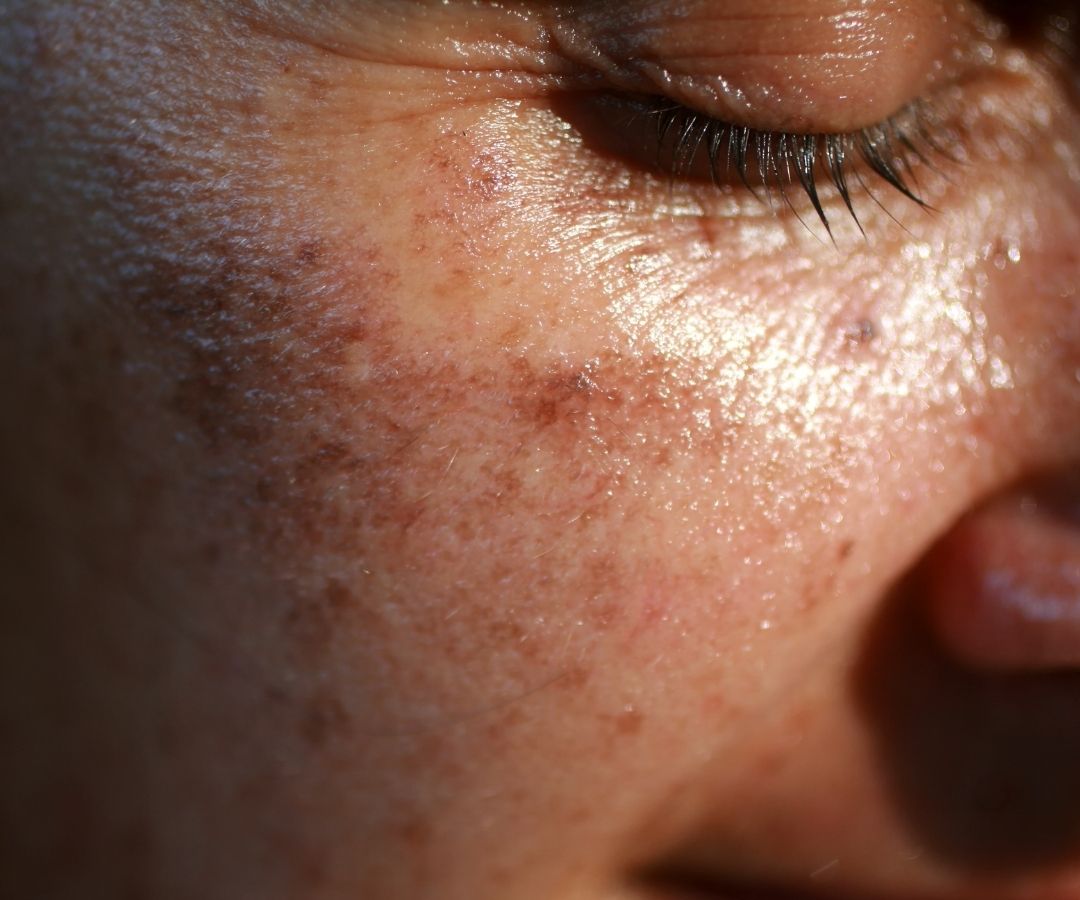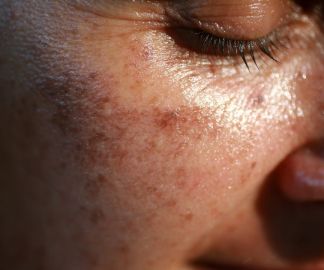What Is Hyperpigmentation... and What Is Uneven Skin Tone?
Pigmentation refers to colouring of the skin and is generally caused by an excessive production of melanin (melanin is the natural pigment that gives our skin its colour).
Hyperpigmentation is a condition where areas of the skin become darker in colour compared to the skin that surrounds it, making the overall appearance of the skin look uneven and sun damaged.
Things like sun exposure, skin injuries and inflammation can trigger melanin production resulting in hyperpigmentation. It very commonly appears on the face, neck and décolletage and unfortunately, is a really frustrating skin condition to treat.
In fact, I’d say fighting pigmentation could be a lifelong battle. (Trust me, I’m there …and continue to live through the battle now). It’s also a condition that often appears out of nowhere, as we age.
This is because our melanocytes (the cells that produce pigment) increase in size as we age. So while we’re young we may have a cute spray of freckles across our cheeks, as the year’s progress, in some skin types they can become denser, causing uneven skin tone and random areas of darkness. Fun times.


Types Of Pigmentation and Hyperpigmentation Causes.
Age spots are darkened patches that appear on the skin’s surface as a result of sun exposure. Colour can vary from light brown to dark brown.
Melasma is a complex type of pigmentation that may occur because of many contributing factors including hormones, medication and sun exposure. If you see hyperpigmentation around the mouth occurring, this is probably Melasma. Melasma is often symmetrical on the face and commonly occurs on the top lip or during pregnancy, presenting as a mask across the nose and cheeks.
Sun damage can cause a mottled, uneven skin tone leading to a dull complexion. All pigmentation will appear darker with sun exposure.
Post Inflammatory Hyperpigmentation (PIH) can occur in all skins but is most common in darker skin types, and those with acne-prone skin. It may appear at any site where there has been inflammation or skin trauma. This is sometimes known as a hyperpigmentation scar. Colours may vary from a light brown to a dark brown / grey. People commonly experience PIH as a spot where a blemish was previously.
You can learn more about post-inflammatory hyperpigmentation in our YouTube video below.





